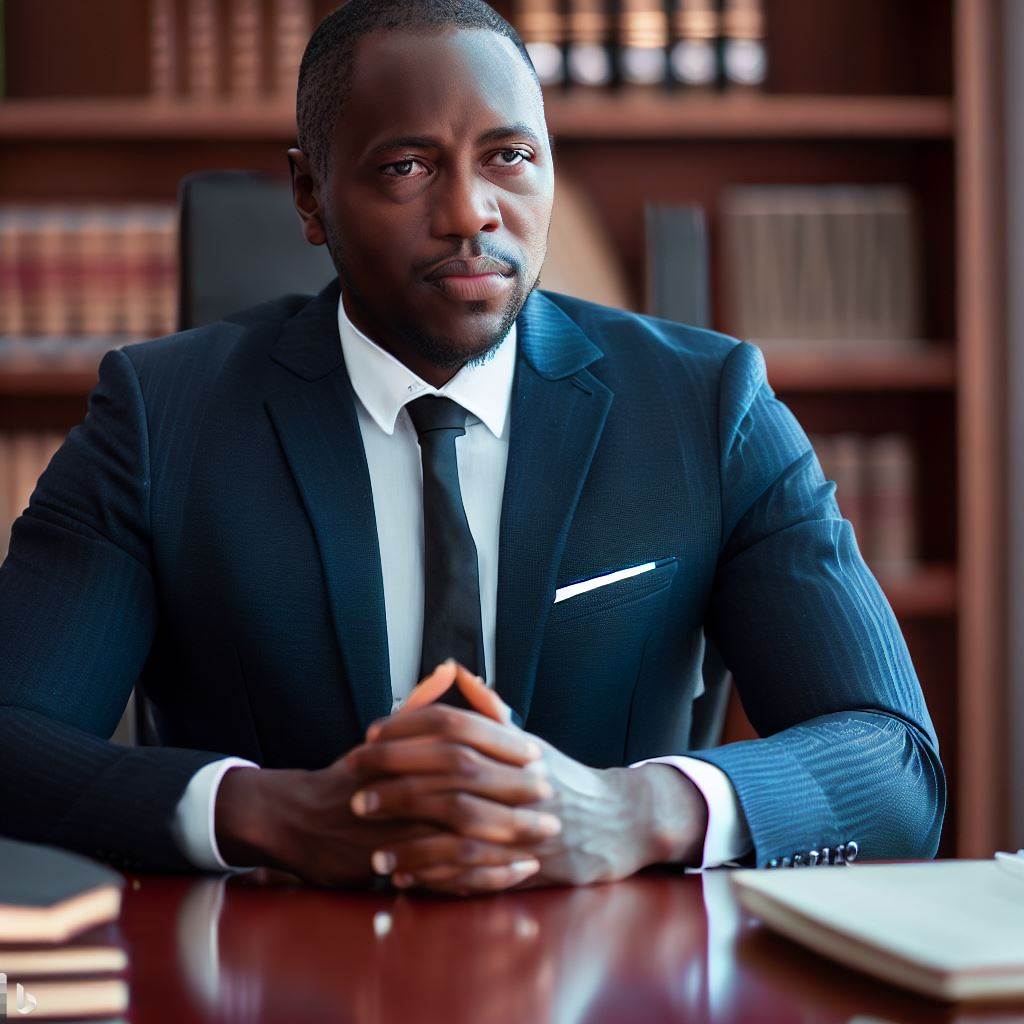Introduction
Challenges Facing the Legal Profession in Nigeria encompass a range of obstacles that lawyers encounter in carrying out their work, which involves providing legal advice, representation, and services to individuals, organizations, and the government.
In Nigeria, the legal profession holds a pivotal role in the administration of justice and the preservation of the rule of law.
This multifaceted domain includes various specialized areas such as advocacy, litigation, legal drafting, and legal research.
However, lawyers in Nigeria confront significant hurdles as they navigate their career paths.
These challenges begin with the demanding process of education and training, which includes earning a law degree and successfully completing the Nigerian Law School program.
Only after this rigorous preparation can individuals be admitted to practice as barristers and solicitors.
Challenges Facing Lawyers In Nigeria
Despite the significant role played by the legal profession, there are numerous challenges facing lawyers in Nigeria today.
These challenges affect not only the lawyers themselves but also the overall justice system in the country.
One major challenge is the backlog of cases in Nigerian courts, leading to delays in the administration of justice.
This backlog is partly due to insufficient court infrastructure, a shortage of judges, and procedural complexities.
Another challenge is the issue of corruption, which has infiltrated the legal profession.
Some lawyers engage in unethical practices, including bribery, to influence the outcome of cases. This compromises the integrity of the legal system and erodes public trust.
Furthermore, there is a lack of access to justice for many Nigerians, particularly those from low-income backgrounds.
Legal services are often expensive and inaccessible, leaving many unable to assert their rights or seek redress when wronged.
Additionally, there is a need to embrace technology in the legal profession.
The use of outdated systems and processes hinders efficiency and effectiveness.
Adopting modern technology can streamline legal processes, improve access to information, and enhance the overall delivery of legal services.
Basically, while the legal profession in Nigeria is essential for upholding justice, there are several challenges that need to be addressed.
These challenges range from the backlog of cases and corruption to limited access to justice and the need for technological advancements.
By addressing these challenges, the legal profession can better serve the Nigerian society and uphold the rule of law.
Historical Background
The development and establishment of the legal profession in Nigeria
The legal profession in Nigeria has a rich history that dates back to the colonial era.
During the British rule, the legal system was introduced as a means of administration and control.
The Nigerian legal profession was initially dominated by expatriate lawyers who were brought in by the colonial masters.
In 1863, the Supreme Court Ordinance was enacted, establishing the first formal legal system in the country.
The legal profession in Nigeria began to evolve and expand with the establishment of law firms.
In the early 20th century, Nigerian lawyers started to emerge and play a more significant role in legal practice.
The legal education system was also developed to provide training and education for aspiring lawyers.
In 1945, the Nigerian Law School was established to train lawyers and equip them with the necessary skills and knowledge.
The legal profession witnessed significant milestones during the struggle for independence in the 1960s.
Nigerian lawyers played a crucial role in advocating for independence and fighting for the rights of citizens.
The legal profession continued to grow and develop after Nigeria gained independence in 1960.
In the post-independence era, Nigerian lawyers became more involved in shaping the country’s legal system.
Key events and milestones in the profession’s history
The legal profession faced challenges in adapting to the changing political and social landscape of Nigeria.
The military coups and subsequent military rule posed significant challenges to the legal profession.
Lawyers were often targeted and harassed for defending human rights activists and political dissidents.
This period saw a decline in the independence and effectiveness of the legal profession.
However, Nigerian lawyers resiliently fought to protect the rule of law and defend the rights of citizens.
The legal profession underwent reforms to address the issues faced during the military era.
Efforts were made to restore independence and integrity to the legal profession in Nigeria.
The legal education system was reformed to ensure that lawyers are adequately trained and prepared.
The Nigerian Bar Association (NBA) played a crucial role in advocating for the rights and welfare of lawyers.
The NBA has been actively involved in addressing the challenges facing the legal profession in Nigeria.
Key Challenges in the profession
Some of the key challenges include corruption, inadequate infrastructure, and limited access to justice.
Corruption within the legal profession undermines the rule of law and erodes public confidence.
The lack of adequate infrastructure, such as well-equipped courtrooms and libraries, hinders efficient legal practice.
Access to justice remains a significant challenge, particularly for the less privileged and marginalized.
Efforts are being made to address these challenges through legal reforms and capacity-building initiatives.
The legal profession in Nigeria continues to evolve and adapt to the changing needs of society.
Lawyers play a crucial role in promoting justice, upholding the rule of law, and protecting human rights.
Essentially, the historical background of the legal profession in Nigeria highlights its evolution and the challenges it has faced over the years.
From its colonial beginnings to the present day, Nigerian lawyers have played a vital role in shaping the country’s legal system and advocating for justice.
Despite the challenges, the legal profession remains crucial in promoting the rule of law and protecting the rights of citizens in Nigeria.
Efforts must continue to address the challenges faced by the profession and ensure a fair and accessible justice system for all.
Read: Exploring the Future of Entertainment Law in Nigeria
Current State of the Legal Profession in Nigeria
In order to understand the challenges facing the legal profession in Nigeria, it is essential to examine the current state of the profession.
This includes the number of lawyers and law firms, the overview of the legal education system, and the role of the Nigerian Bar Association (NBA).
Number of lawyers and law firms
- Nigeria has a large number of lawyers, estimated to be over 100,000.
- This high number of lawyers can be attributed to the country’s large population and the increasing demand for legal services.
- However, the distribution of lawyers across the country is uneven, with most practicing in urban areas.
- There is also a significant disparity in the quality and expertise of lawyers in Nigeria.
- Some lawyers are highly competent and provide excellent legal services, while others lack sufficient training and experience.
Overview of the legal education system
- The legal education system in Nigeria consists of a three-tier process: the university, the Nigerian Law School, and the legal professional training.
- Lawyers are required to obtain a law degree from a recognized university before proceeding to the Nigerian Law School.
- At the Nigerian Law School, aspiring lawyers undergo a one-year practical training program, which includes theoretical and practical courses.
- Upon successful completion of the program, candidates are called to the Nigerian Bar and can practice as lawyers.
- However, there have been concerns regarding the quality of legal education and the bar examination process.
Role of the Nigerian Bar Association (NBA)
- The Nigerian Bar Association is the umbrella body for all lawyers in Nigeria and plays a crucial role in regulating the legal profession.
- It sets standards, conducts disciplinary proceedings, and advocates for the interests of its members.
- The NBA also serves as a platform for lawyers to network, exchange knowledge, and foster professional development.
- However, there have been criticisms of the NBA for not adequately addressing the challenges facing the legal profession.
- Some argue that the NBA should do more to enhance the competence and ethical conduct of lawyers.
In general, the current state of the legal profession in Nigeria is characterized by a large number of lawyers, an uneven distribution of legal services, concerns about the quality of legal education, and the role of the Nigerian Bar Association.
While there are competent and dedicated lawyers in Nigeria, there are also challenges that need to be addressed to improve the overall quality and effectiveness of the legal profession.
Efforts should be made to ensure better access to legal services, enhance the quality of legal education, and strengthen the regulatory role of the Nigerian Bar Association.
Only through these measures can the legal profession in Nigeria overcome its challenges and serve the needs of the society more effectively.
Read: Entertainment Lawyer vs. Artist Manager: What’s the Difference?

Challenges Faced by the Legal Profession in Nigeria
Limited Access to Justice
- Insufficient number of legal professionals
- High legal fees and cost of litigation
- Limited reach of legal aid services
Corruption and Impunity
- Ethical issues and professional misconduct
- Lack of accountability and transparency in the legal system
- Influence of political and economic interests
Read: The Evolution and History of Legal Professions in Nigeria
Inefficient Judicial System
- Slow pace of litigation and case backlog
- Challenges in enforcing judgments and court orders
- Lack of modern technology and infrastructure
Inadequate Legal Education and Training
- Outdated curriculum and teaching methods
- Insufficient practical skills development
- Limited opportunities for continuing professional development
Gender and Diversity Disparity
- Underrepresentation of women in the legal profession
- Limited diversity within the profession
- Challenges faced by marginalized groups in accessing legal services
Read: Case Study: Influential Entertainment Lawsuits in Nigeria
Potential Solutions and Initiatives
Increasing Access to Justice
- Legal aid reform and funding can help provide assistance to individuals who cannot afford legal representation.
- Pro bono initiatives by legal professionals can offer free legal services to marginalized and disadvantaged populations.
- Government support for alternative dispute resolution mechanisms can help expedite the resolution of legal disputes.
Promoting Ethics and Accountability
- Strengthening professional regulatory bodies to ensure adherence to ethical standards for legal professionals.
- Enhancing disciplinary measures and enforcement to hold legal professionals accountable for misconduct.
- Encouraging transparency and public accountability in legal processes to foster trust in the legal system.
Judicial Reforms
- Improved case management and court administration can help reduce delays and backlog in the judicial system.
- Implementation of technology in legal proceedings, such as e-filing systems, can streamline processes and improve efficiency.
- Training and capacity building for judges and court staff to enhance their skills and knowledge in delivering fair and timely justice.
Legal Education Reforms
- Curriculum review and modernization to ensure that law schools provide relevant and updated legal education.
- Practical skills training and experiential learning opportunities can equip law students with the necessary skills for legal practice.
- Collaboration with the legal profession and industry can help align legal education with the needs of the profession.
Promoting Diversity and Inclusion
- Creating awareness and advocating for equal opportunities for underrepresented groups in the legal profession.
- Supporting mentorship and professional development programs to empower individuals from diverse backgrounds.
- Implementing affirmative action policies to address disparities and promote inclusivity in the legal profession.
In order to address the challenges facing the legal profession in Nigeria, various potential solutions and initiatives can be implemented.
These strategies aim to enhance access to justice, promote ethics and accountability, reform the judiciary, improve legal education, and foster diversity and inclusion in the profession.
By implementing these measures, Nigeria can create a stronger and more efficient legal system that upholds the principles of justice and equality for all.
Read: The Key Role of Entertainment Lawyers in Protecting Nigerian Creatives
Find Out More: How Paralegals are Shaping Nigeria’s Legal Landscape
Conclusion
The legal profession in Nigeria faces numerous challenges that hinder its effectiveness and efficiency.
The lack of adequate funding and resources has severely impacted the provision of quality legal services.
Court delays and backlog of cases also pose a significant challenge to the profession, undermining access to justice.
Additionally, corruption and unethical practices among legal practitioners tarnish the reputation of the profession.
Moreover, the slow pace of legal reforms and outdated laws further impede the growth and development of the legal sector.
However, despite these challenges, there is optimism for potential reforms and improvement in the future.
Efforts are being made to address the funding issues and enhance the infrastructure of the legal system.
There is also a growing demand for legal education and training programs to produce competent and ethical lawyers.
Furthermore, the legal community is advocating for the implementation of new laws and policies to streamline judicial processes.
With these initiatives, it is hoped that the legal profession in Nigeria will overcome its challenges and become more efficient in providing access to justice for all.




